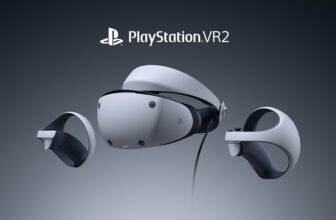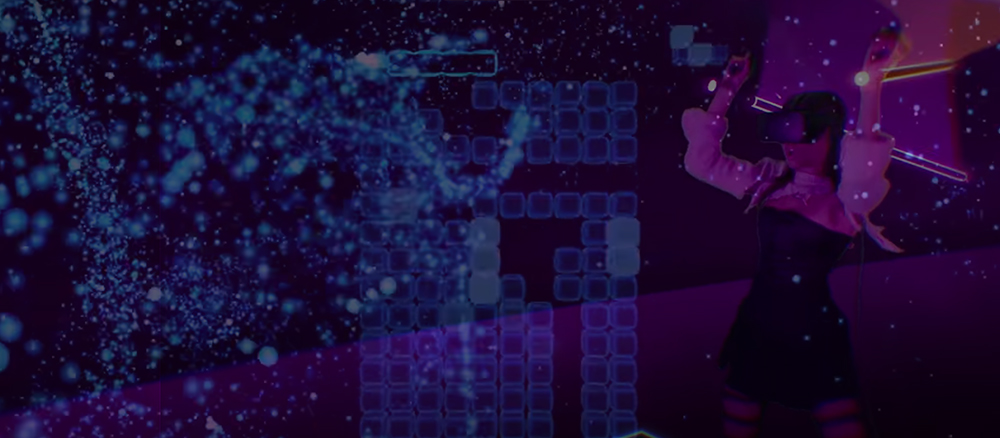Notice: Only variables should be passed by reference in /var/www/wp-content/themes/rehub-theme/functions/video_class.php on line 21
Notice: Only variables should be passed by reference in /var/www/wp-content/themes/rehub-theme/functions/video_class.php on line 21
The turn of the 21st century has seen rapid and major advancements in the development of virtual reality technology and as a result, in recent years, many considered it to hold the key to the future of the gaming industry. With social media giant Facebook purchasing the pioneering Oculus Rift headset back in 2014 for an eye-watering sum of $2bn, the more technologically savvy amongst us were hopeful that future technology would answer many of the unfulfilled promises that virtual reality had so far failed to deliver upon. However, the sale of VR headsets in the gaming scene has so far been underwhelming.
The PlayStation PSVR, in particular, has suffered from disappointing sales – research group SuperData predicted that Sony would sell around 2.6 million units in 2016 but later revised that figure down to less than 750,000. In fact, a recent VR study conducted by the Consumer Technology Association found that consumers were more keen to experience VR relating to lifestyle activities such as sports, exercise and live concerts. With that being said, it could very well be the case that companies will now start turning their attention from gaming VR to VR relating to other forms of entertainment in a bid to revive the technology – and perhaps use entertainment as a stepping stone to familiarize consumers with it.
VR In The Entertainment Industry
Music
Next VR, LiveNation and Citi announced last year that they planned on broadcasting live concerts in VR as part of their “Backstage with Citi” series, with Imagine Dragons one of the latest high profile artists to have their entire concert broadcast to the public via a VR headset. Users are given backstage access and special footage at all live VR related shows, with Slash’s show even including extras of the musical icon touring the L.A Zoo he played at while interacting with animals and displaying his passion for animal conservation.
In addition to releasing different VR gadgets, such as the Samsung Gear 360 4k camera back in March, Samsung is already fairly involved in the live streaming game and streamed a Coldplay concert in VR in August, which was broadcast to 50 countries around the world. Michael Schmier, Vice-President of content and Services at Samsung America stated that “..music fans across the globe with Gear VR can tune into the live concert and experience the energy of the show like never before.”
Last year, Google Play teamed up with Queen and Enosis VR to put together a 360 degree VR take on the video for the band’s groundbreaking 1975 hit Bohemian Rhapsody. Users taking part in the experience had the chance to share the stage with the rock legends while a neon-rendered moustachioed Freddie Mercury danced and strutted around them while belting out the words to the band’s iconic hit. However, this shouldn’t really come as much of a surprise as guitarist Brian May is a well known proponent of the technology and has even designed his own VR viewer, the Owl, which is intended to be used with smartphones, much like Google Cardboard.
Sports
As if they aren’t already involved enough, Samsung recently got in on the VR act yet again, bringing UFC fights and other live sporting events to Gear VR. Fans of the sport had the chance to watch featherweights Jose Aldo and Max Holloway thrown down on June 3rd in Rio de Janeiro. After the event, Samsung then went on to cover the X Games in Minneapolis in July for some live skateboarding and BMX action for audiences wanting in on the high-adrenalin experience in a new, realistic way.
The Laguna Beach, California based Next VR is in partnership with both the NBA and the NFL, providing a highlight package for the latter like no other and is released straight after the completion of the game. The end result represents the dawn of a new VR experience which aims to combine the feeling of being in the stadium along with the benefits associated with watching the game on TV.
It’s even possible to survey some of golf’s most prestigious and beautiful courses without having to shell out a shed load of money on travel expenses and accommodation – all you need is a compatible phone, a Samsung Gear VR and The PGA Tour VR app, which was released in collaboration with Intel, and you’re all set. The PGA tour recently teamed up with Intel in order to distribute live video at six events, which started with the Tour Championship in late September and concluded with Presidents Cup just over a week ago.
All is Not Lost on the Gaming Front
The gaming industry has certainly not given up on the idea of immersive VR experiences either, with The MGM Grand Hotel and Casino opening Las Vegas’ first free-roaming VR experience last month. The move could well prove to be a success due to the fact that on the surface of it, casino games such as roulette are arguably extremely well suited to the world of virtual reality.
Once the VR headset is properly activated and fully functional, it would simply be a case of meeting a computer-generated dealer who will in turn spin the wheel and call out bets for the player just as a human dealer would. The basic premise of playing roulette would remain the same and the dealer will still allow you to place both inside and outside bets for example, the latter of which relates to bets that come in pairs such as red and black, odd or even and high and low numbers. For another relatively recent example of a successful implementation of this within the gaming world, you need to look no further than Pokemon Go, which went on to become one of the most successful games of 2016 following its release in 2016. While the game is technically centered around augmented reality as opposed to virtual reality, Pokemon Go is still a perfectly suitable blueprint of how it’s possible to incorporate such technology into a game.

IMAGE SOURCE: FACEBOOK
Time is of the Essence
Virtual reality is still a relatively new beast and gaming brands are well capable of turning the tide in their favor and embracing the technology. Virtual reality is a fun ride – and one that we should both and embrace and cherish. The fact still remains that the technology may be the only viable revolution in gaming for the next few decades and developers are users to give VR the time and patience it needs in order to be a success. The technology has come a long way in 17 years since the turn of the 21st century, who knows where it could be in another 17?





